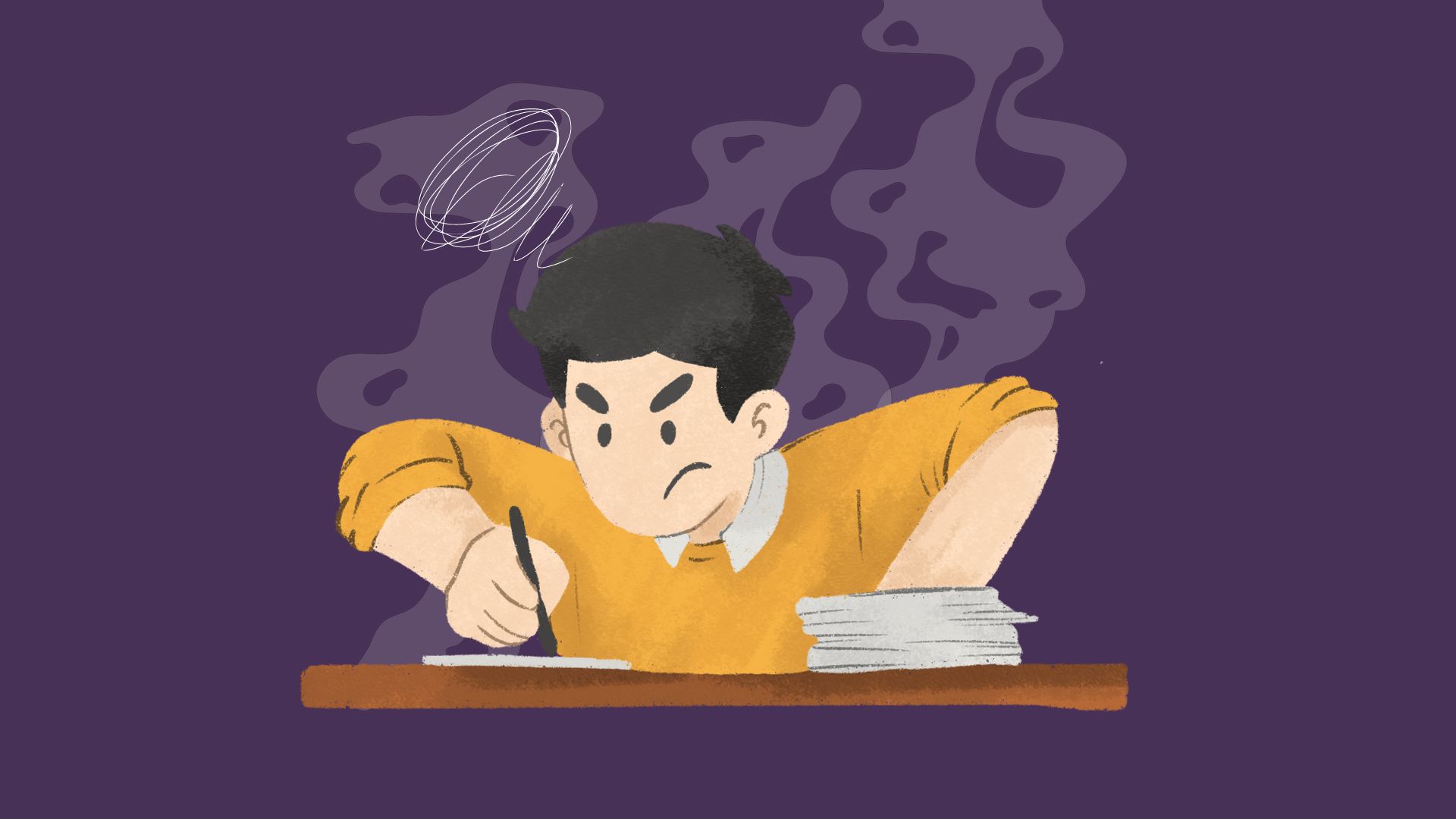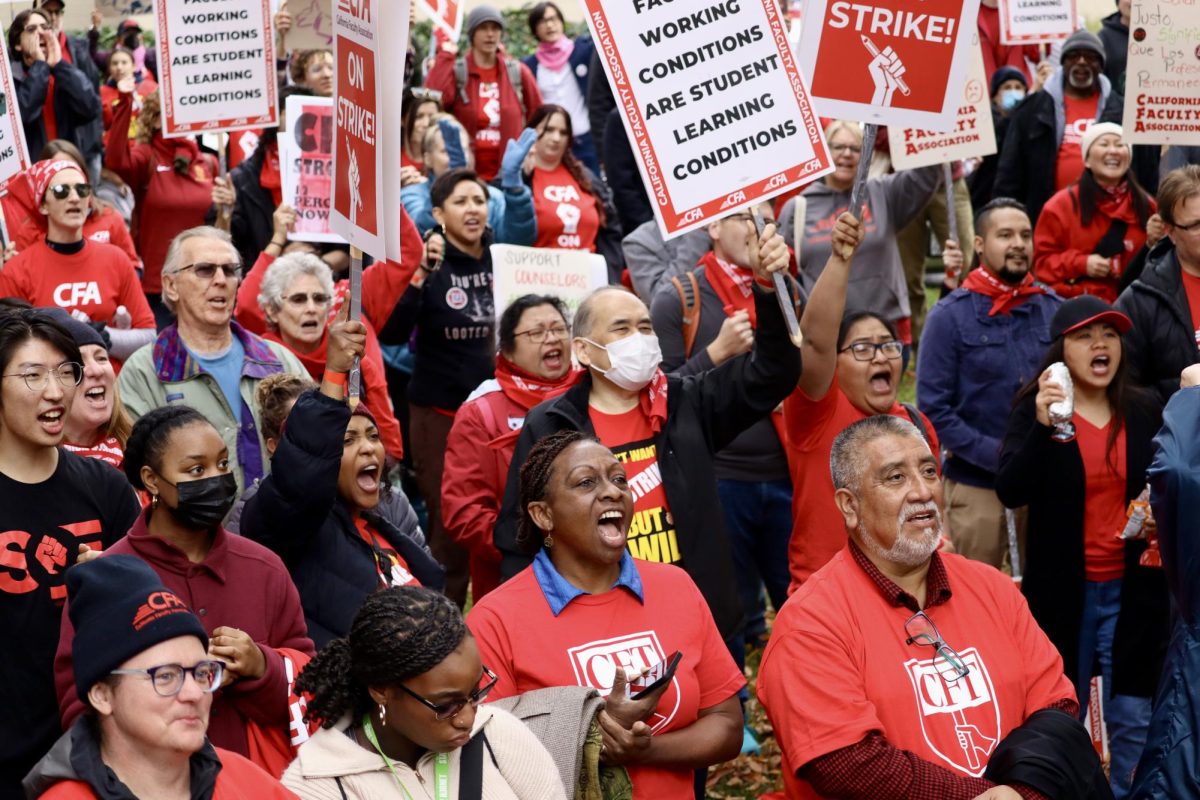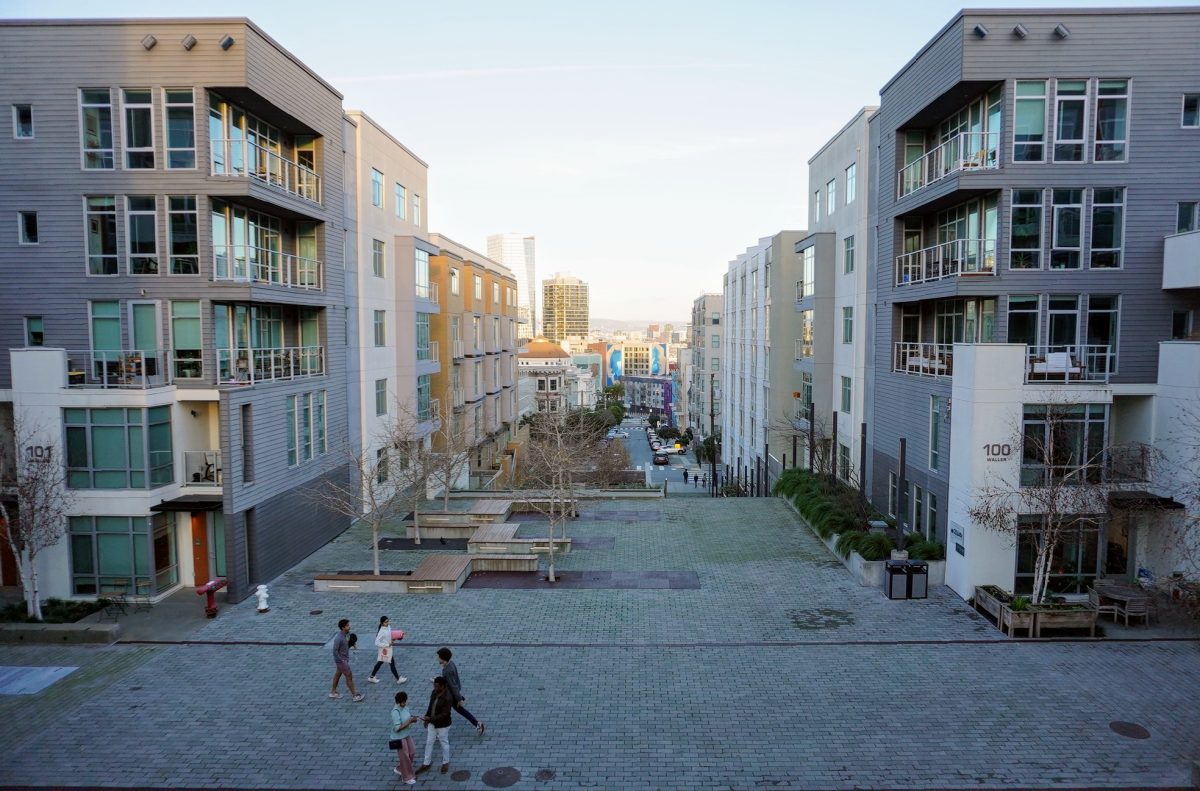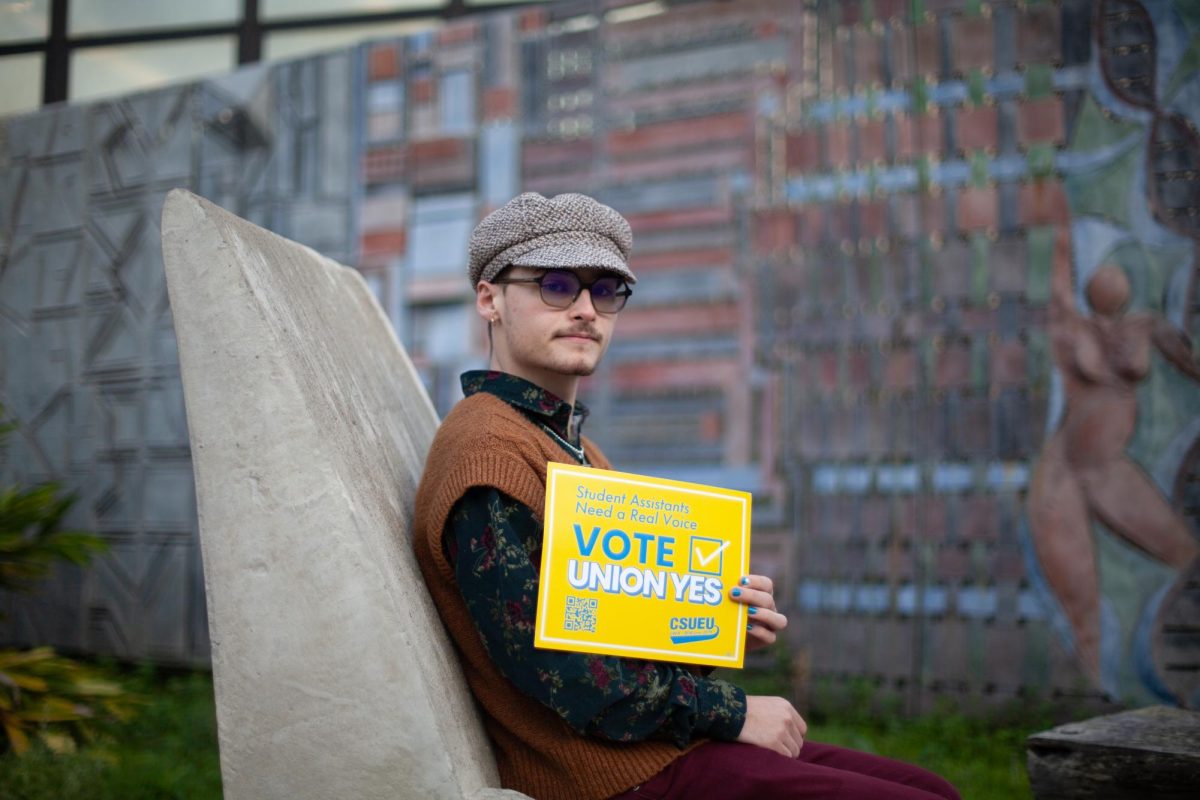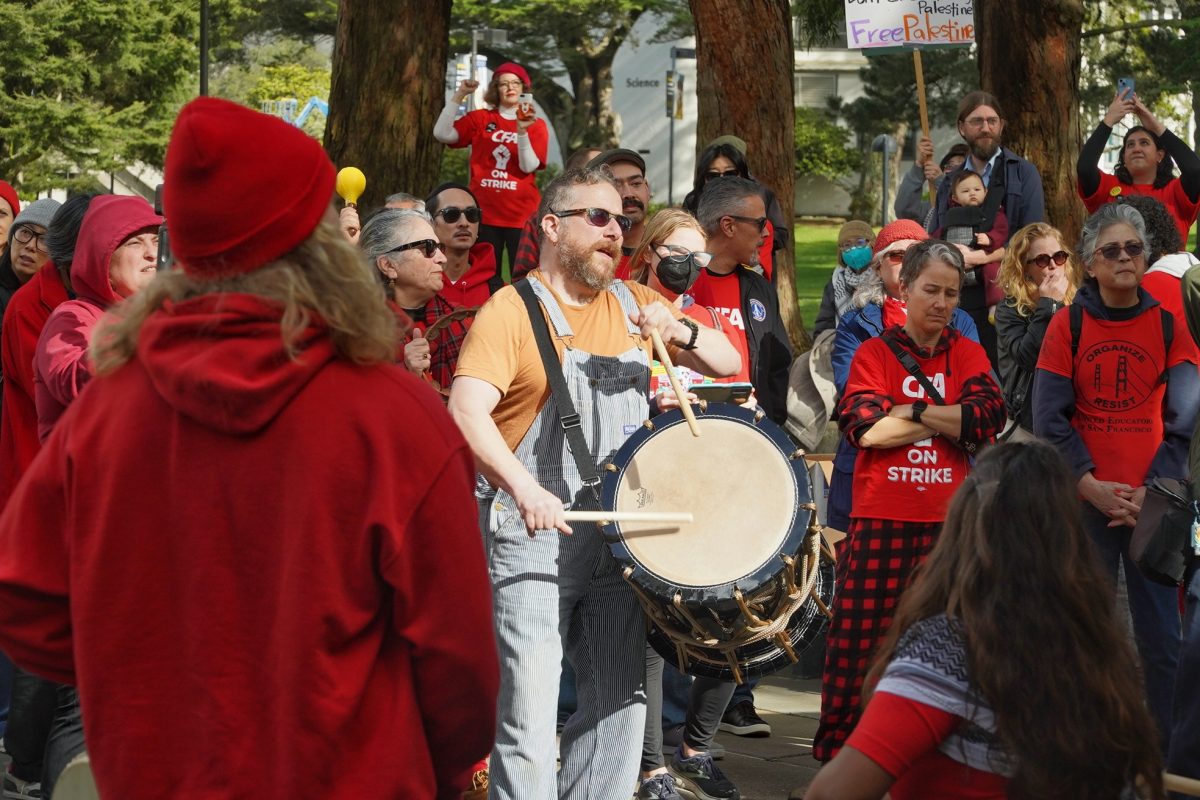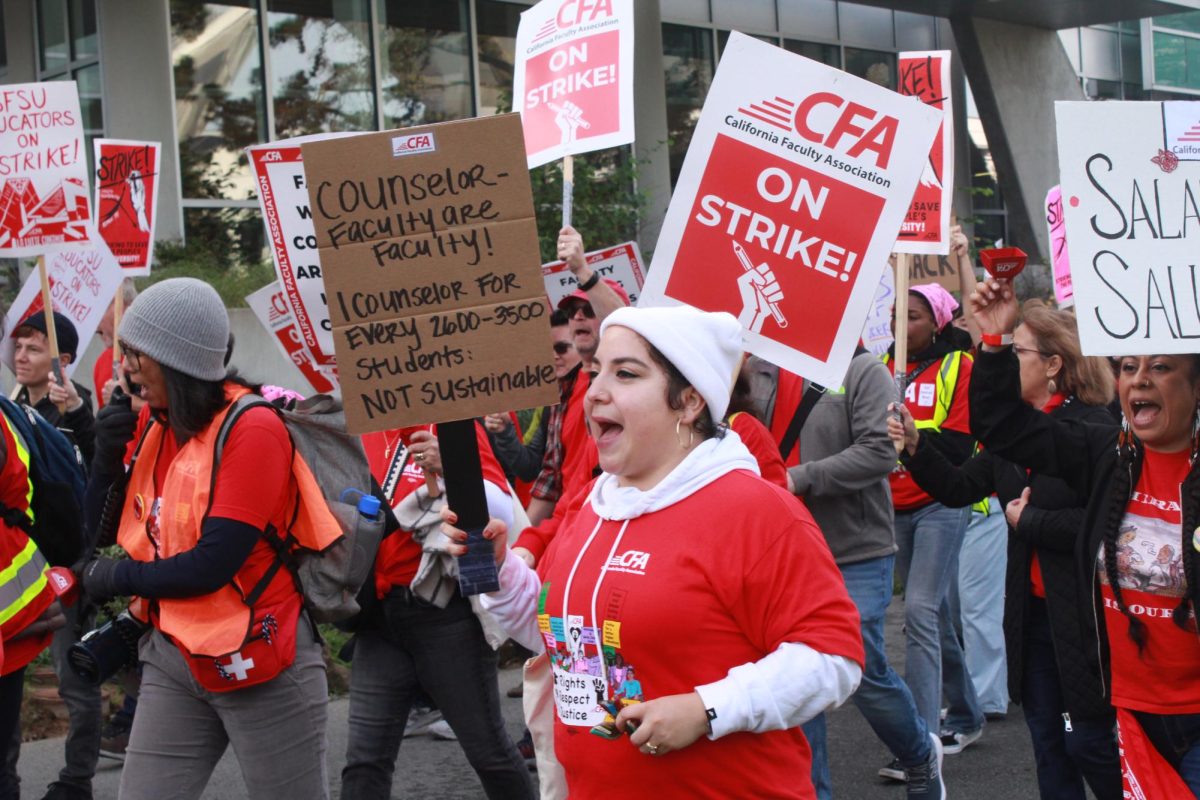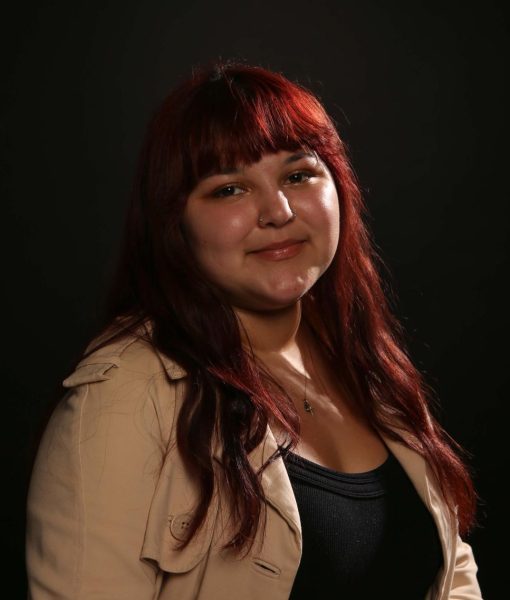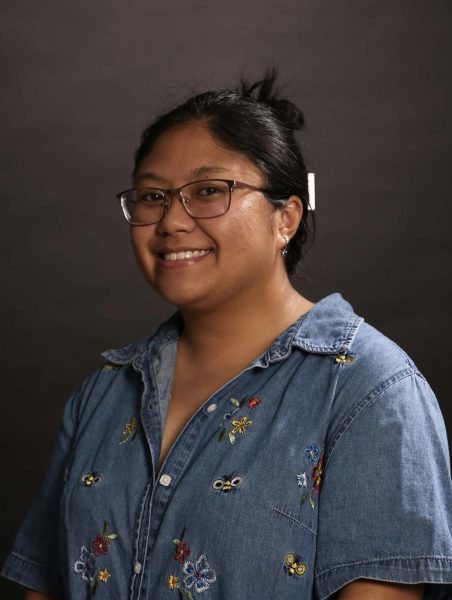When graduating to become a teacher for higher education, there is a certain standard that is expected on faculty treatment, respect and salary contract, however, that is not the experience of California State University’s professors.
Meghan O’Donnell, a lecturer at CSU in Monterey Bay, graduated in 2010 and started teaching as a lecturer for Constitutional and Political History in 2011.
“Pretty much since the first day I was hired, it’s been quite a demoralizing experience working in the CSU because we’re just so undervalued as faculty. Year after year we continue to be under-resourced and underfunded,” said O’Donnell. “It was shocking when I first found out how little I was going to make.”
According to O’Donnell, she makes less than $60 thousand, a year.
The California Faculty Association consists of 29 thousand, faculty members who teach at CSU and are hoping to see changes in their working conditions, according to the CFA website.
CFA includes employees who are tenured, tenure track, lecturer faculty, counselors, librarians and coaches.
O’Donnell is CFA Monterey Bay’s chapter lecturer representative and has been with them since 2011.
“At this point, the working conditions in the CSU have gotten so dire and I think faculty feel so desperate that we really need some transformational change in how CSU management treats its workers,” said O’Donnell.
According to Jeff Newcomb, the CFA East Bay president, all CFA chapters have been bargaining with the CSU to improve their salaries by 12%, define workload, parental paid leave and health and safety since late spring.
Mark Allan Davis, a tenured professor of African American studies and the Council for Racial and Social Justice representative for the San Francisco CFA’s chapter, went into more detail about the importance of health and safety.
“Health and safety includes gender inclusive restrooms meaning that every building on every campus in the CSU should have at least one gender inclusive restroom, and then also lactation rooms for parents,” said Davis. “Safety also involves the amount of budget that goes into policing that can be reduced.”
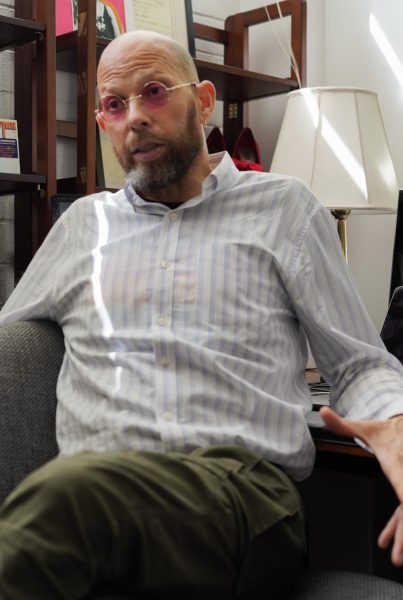
CFA is requesting to re-open Articles 31, 20, 23, and 37, those are related to salary increase and better work conditions. These four articles are a p part of the current contract for 2022-2024, which was left undetermined when signed.
“A couple of weeks ago, we reached an impasse, which means both sides in the bargaining situation have not been able to come to an agreement,” said Newcomb. “In fact, we’re quite far apart on all of those, all of those topics.”
The impasse was reached due to the university’s offer of adding a 1% increase in their original offer of 4% raise in salary, making it a total of 5%, which is nowhere near the 12% that CSU faculty is asking for.
CFA plans to go through the entire process of negotiating with the CSU to avoid going on strike.
On Aug. 25, the interim chancellor, Jolene Koester, released a video to address the faculty at all 23 CSU campuses.
“In fact, the total new financial commitment to our faculty and staff for the current year far exceeds the entire amount of new funding that we’re going to receive, which is $227 million. We have extended, and we have stretched, and that means our university leadership is going to be challenged to meet these obligations. But meet the challenges they will because they share my commitment to fair compensation and the CSU is going to continue to bargain in good faith. I must however share a reality with you. If we extend ourselves further, each of 23 universities will be put in a position where they’re going to be forced to make different and painful decisions,” said Koester in the CSU web services video.
The video was sent to faculty via a private link and was not made public to the entire CSU community. Koester’s full statement can be viewed here.
According to Newcomb, the next stage is mediation, where a three-person panel is appointed to meet with both sides in an attempt to reach a resolution to their disagreements. If that does not happen, then the last step is fact-finding, where there is a three-person panel, both sides (union and employer) have one person as a representative and a neutral third party to listen to both sides’ presentations.
The panel then issues a majority report, written by one side and the neutral party to state findings and recommend a resolution.
If there is no improvement for CFA, then that would lead to other possible actions they could take or, worst case, a strike.
According to O’Donnell, during their meetings with the chancellor’s bargaining team, employees shared stories of their struggles of barely being able to pay rent and why they needed these demands.
“I think part of the frustration is that there seems to be a real kind of disconnect and almost like there’s an out-of-touch relationship [with] the average faculty member or staff person, or even our students,” said O’Donnell. “I think what we’re seeing is management is so insulated from the everyday struggles that their employees face.”
Kimbrough Moore, a philosophy and computer science lecturer at SF State, said that he hoped there could be negotiations for the demands.
“I do love philosophy. I love being in the classroom. I love teaching,” said Moore. “I love kind of sharing these ideas with my students, but I also do want a job that lets me support myself and my family.”
According to Moore, for the last 15 years, wages for faculty have not been keeping up with inflation, and all raises for lecturer faculty were put on hold for 10 years after 2008. Lecturer faculty were able to receive raises again, starting in 2018.
“If you look at lectures on campus as a whole, three-quarters of the lecturer faculty rely on non-academic funding,” said Moore. “They have other sources of income because this job does not pay enough to live in the Bay Area.”
In the philosophy department, about a quarter of the faculty have to go on unemployment twice a year because they met the eligibility, according to Moore.
“I did expect to have progression in my income as I be more senior and that’s not happening in the way that I anticipated,” said Moore.
As employees demand more pay, it might seem like this is connected to a 6% annual student tuition increase proposal for the next five years.
“I think it’s such an ugly kind of idea on many fronts. Not only is it unjustifiable, I mean students are not ATMs,” said O’Donnell. “This is a public institution, and students deserve to have a quality education and a great university experience without having to work two jobs and go into debt.”
According to Davis, the proposed 6% annual tuition increase would not resolve the faculty salary.
Data from the CSU’s website show that from 2021 to 2023 there has been an increase in salary for the CSU’s presidents.
CSU East Bay’s president has received a 7% salary increase while CSU Monterey Bay and San Francisco’s president has received a 17% increase in two years.
This salary increase does not include the housing payment they also receive.
“We serve the vast majority of California students and provide opportunities for them that would be off limits. If we didn’t exist,” O’Donnell said. “It’s really essential that the CSU leadership wake up to the fact that the CSU runs on us. I hope that they can wake up and understand that before we’re forced to show them physically what it looks like to shut the CSU down.”
Golden Gate Xpress reached out to the CSU for comment but did not receive a response before publication.
Editor’s note: This story was revised for clarity.


